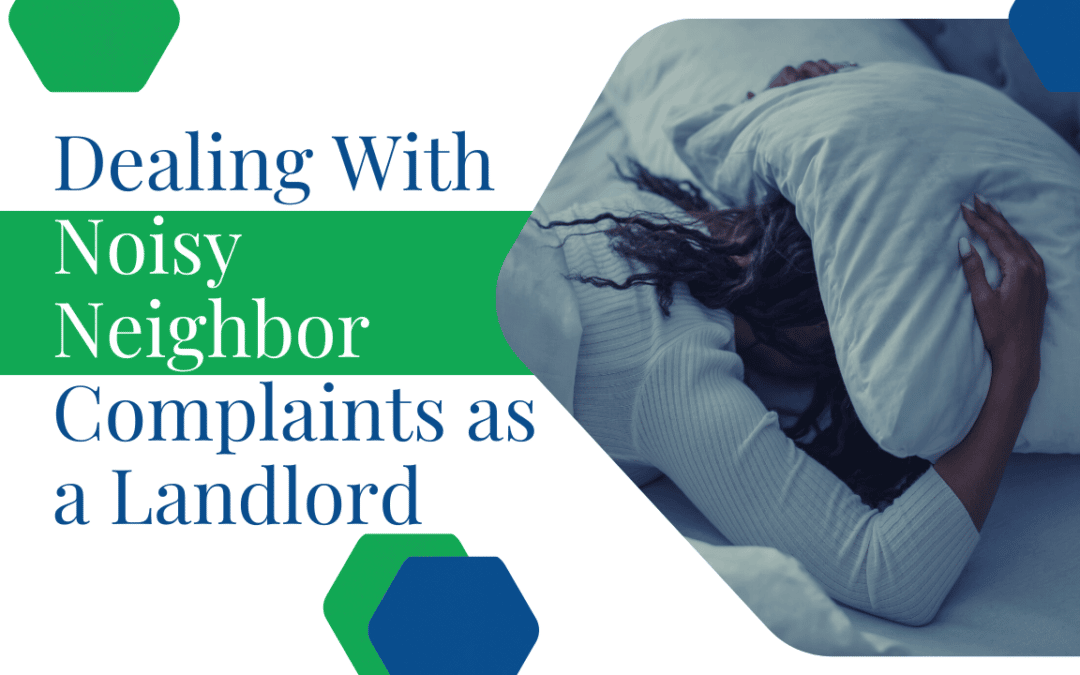One of the less pleasant tasks as a landlord is dealing with tenant disputes and complaints. You’ll have tenants who are eager to tell you all of their problems, and you’ll need the skill to decide what requires intervention from you.
A common complaint from your tenants, especially if you’re renting out units in a multi-family building, will be noise. Landlords will frequently have to hear one tenant complain about another’s loud television, barking dogs, and screaming children. This can be tricky for rental property owners. It’s hard to control the noise level in a building.
There’s only so much you can do, but you should make an effort to listen to your tenants and document their complaints. Here are some of the recommended actions you can take when a tenant comes to you with a noise complaint.
Dallas-Fort Worth Tenants Want to be Heard
Your tenants have a right to the quiet enjoyment of their property. That very language is probably in your lease agreement.
When a tenant makes a noise complaint, listen to them. Sometimes, tenants are simply looking to be heard. You have a responsibility to let them make their complaint.
Demonstrate compassion for the situation and offer to speak to the other tenants if they’re in a property that you’re also renting out. If the people making noise are not your tenants, it may be difficult for you to enforce any kind of rules about noise.
Even if there’s not much you can do about the noise, listening to your tenant and offering to investigate can go a long way in making your tenant feel supported.
Document the Noise Complaint
You might be renting out a property to both the complaining tenant and the offending tenant. In that case, check the lease agreements they’ve signed. You should have something in there about respecting quiet hours, which typically begin at around 10 p.m.
If there’s a lease violation, send a written notice to the noisy tenant that you have received complaints. Include the lease verbiage that needs their attention and ask them to be mindful of the noise they’re creating.
When you’re renting out a property in an HOA or a condo association, there are likely rules about the noise that all residents must follow, whether they’re owners or renters. Check the rules and regulations and if necessary, make a complaint to the association board.
Always document the noise complaint. If you need to evict a tenant who refuses to control their noise or you need to talk to an HOA or file a complaint with law enforcement, you’ll want to demonstrate the number of times that the noise has been disruptive. Ask your tenant who is complaining to keep records as well.
Establishing Positive Tenant Relationships

If the noise is persistent and polite requests to keep it down go ignored by the tenants who are causing problems, you can take steps to evict them if you are renting the property in which they’re living. If they’re not your tenants, you don’t have much control over how they behave. If the noise levels become a public nuisance, your tenant can make a complaint with local law enforcement.
Good relationships with your tenants will prevent awkward situations. Create an atmosphere where everyone feels safe and comfortable talking to each other about issues like noise. It’s possible the noisy tenant simply doesn’t realize what kind of issues their children, pets, or music are creating.
Make sure your lease agreement is specific about noise. Include the consequences that will occur if repeated noise complaints continue to accrue.
If you’d like to talk about some of your options as a landlord who is dealing with noisy residents or any other Dallas-Fort Worth property management questions you may have, please contact us at Assign Property Management.


Recent Comments